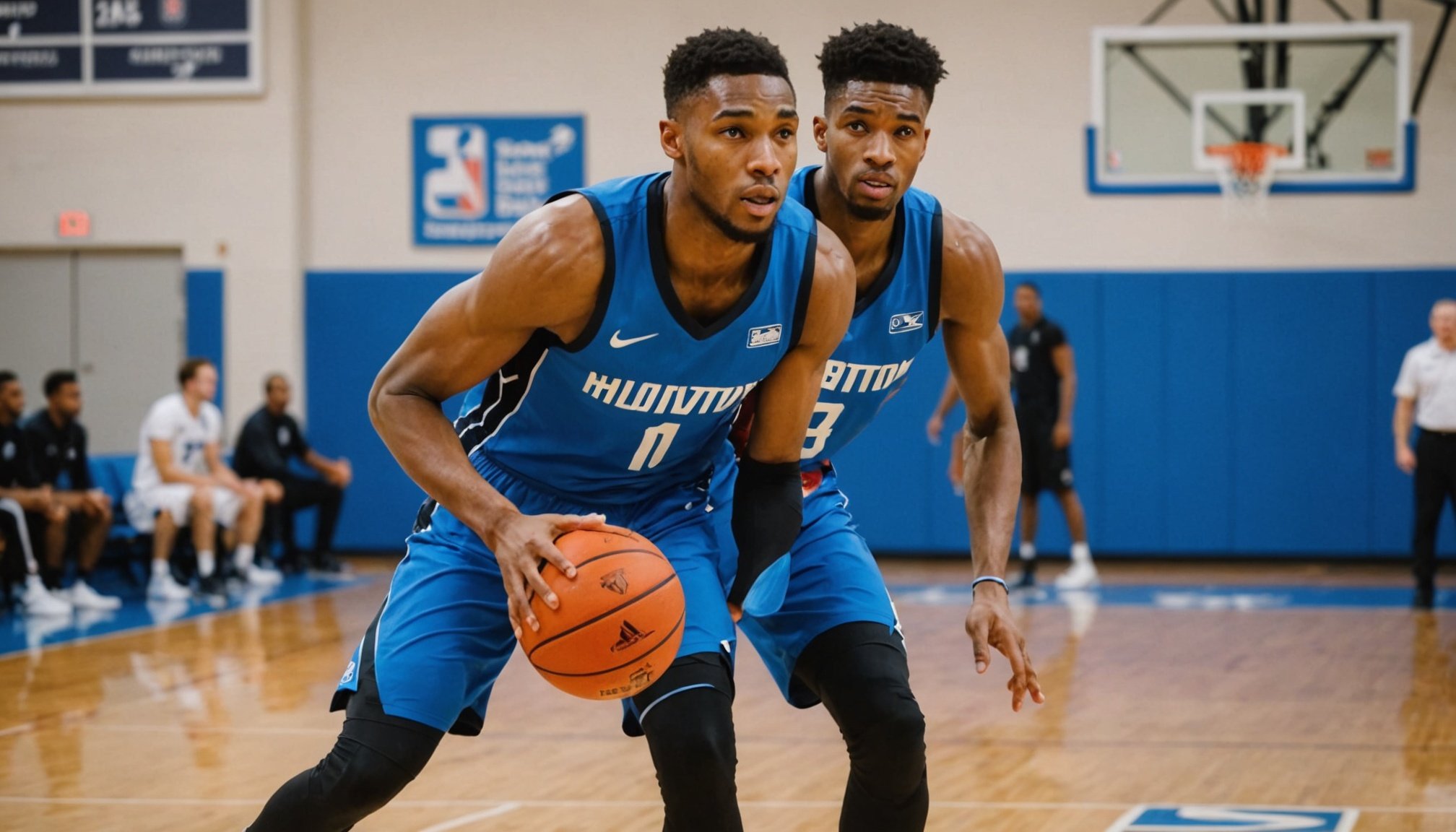Importance of Hydration for Basketball Performance
Hydration holds a crucial place in performance enhancement, particularly for basketball athletes. Maintaining optimal fluid levels is paramount, as the role of hydration in physical performance cannot be overstated. Basketball, being a high-intensity sport that demands agility, strength, and endurance, necessitates consistent and adequate hydration.
Dehydration can drastically impair athletic performance, leading to reduced energy levels, increased fatigue, and poorer decision-making skills on the court. The significance of hydration extends beyond just games; it plays a substantial part in recovery post-game and during training. When athletes are properly hydrated, their muscles recover more efficiently, they experience less soreness, and their risk of injuries decreases.
Additional reading : Empowering uk basketball coaches: proven tactics to help players bounce back from consecutive defeats
Understanding the effects of dehydration equips basketball athletes with the knowledge to manage their hydration proactively. Symptoms of dehydration, which can include confusion, headaches, and dizziness, should serve as precautionary signals for athletes to address immediately. Therefore, emphasizing the significance of proper hydration is vital for optimal performance and recovery in basketball. Integrating a robust hydration protocol ensures athletes maintain peak performance levels, both in practice and during games. By prioritizing hydration, basketball players can enhance their physical capabilities and prolong their sporting careers effectively.
Hydration Strategies for UK Basketball Athletes
Understanding hydration strategies is essential for UK basketball athletes to maintain peak performance. As players often face varied challenges in maintaining hydration, it becomes crucial to adopt effective strategies to sustain optimal fluid levels.
In the same genre : Boosting flexibility for injury prevention in uk basketball athletes: essential strategies for a safer game
Daily Hydration Requirements
Basketball athletes should establish a tailored daily hydration plan catering to their body size and activity level. It is recommended that athletes consume at least 3-4 litres of fluids daily. This encompasses water, sports drinks, and even hydrating foods like fruits and vegetables.
Pre-Game Hydration Tips
Prior to a game, athletes should ensure they’re adequately hydrated. Consuming 500ml of fluids about two hours before tip-off can help. Hydration should also include electrolyte-rich drinks to offset losses during the game.
During Game Hydration Recommendations
Staying hydrated during a game is paramount as it helps in maintaining energy levels and improving focus. Sipping fluids at regular intervals aids in consistent performance, with customizable hydration plans for individual needs. Sports drinks can be beneficial here, providing both hydration and energy.
By embedding these hydration strategies into their routine, UK basketball athletes can significantly enhance performance, optimize recovery, and support overall health. Understanding and personalizing hydration approaches allows athletes to adapt to different practices and game scenarios effectively.
Climate Considerations for Hydration
The UK climate offers unique challenges and considerations when it comes to athlete hydration. Typically characterized by humidity and fluctuating temperatures, understanding how these conditions impact hydration is crucial for basksetball athletes.
UK Climate Impact
In the UK, weather can vary greatly from hot and humid summers to cold and wet winters. These conditions can influence hydration needs significantly. During the warmer months, athletes may require more fluids to compensate for sweat loss, while in cooler conditions, the feeling of thirst might be less pronounced, potentially leading to unintentional dehydration.
Hydration Adjustments
Athletes should adjust their hydration strategies with the seasonal changes. In summer, increasing intake of rehydrating fluids and electrolyte-rich drinks can help avert dehydration. Conversely, in winter, athletes should maintain steady hydration despite the deceptive lack of thirst. Consuming warm fluids can be beneficial during colder months.
Monitoring in Various Weather Conditions
Monitoring hydration is essential regardless of the weather. Implementing regular hydration checks, such as urine colour or volume assessments, helps athletes stay aware of their hydration levels. Customising hydration plans according to individual responses to weather changes ensures that athletes remain adequately hydrated, crucial for optimal performance.
Hydration Resources and Tools
Access to the right hydration resources is essential for basketball athletes aiming to maintain optimal performance levels. In the UK, having reliable resources at their disposal can make a significant difference.
Accessing Quality Hydration Products
Athletes should consider integrating both sports drinks and water into their hydration regimen. While water is excellent for basic hydration, sports drinks can be advantageous due to their electrolyte content, aiding in energy replenishment. It’s crucial to source these from reputable suppliers that understand the needs of athletes.
Using Hydration Tracking Apps
Technology can be a game-changer in maintaining hydration. Utilizing hydration tracking apps helps athletes monitor their fluid intake, ensuring they meet daily needs based on activity levels. These apps often provide reminders and personalized suggestions, aiding consistency.
Recommended Local Hydration Sources
Identifying local suppliers who specialise in athletic hydration products can benefit players immensely. Many brands offer tailored solutions, considering the unique demand of the sport, providing not just drinks but also supplements and hydrating snacks. Consistent use of these resources boosts recovery times and overall health.
Prioritizing these hydration tools ensures basketball athletes effectively manage their hydration, enhancing both performance and recovery.
Consequences of Inadequate Hydration
In the realm of competitive basketball, the effects of dehydration can be profoundly detrimental to an athlete’s performance and health. Insufficient hydration can lead to immediate performance risks such as diminished endurance, reduced agility, and impaired cognitive functions. These immediate impacts can alter the outcome of a game as players may struggle to keep up with the fast-paced demands of the sport.
Athlete health is significantly impacted in the long term due to continuous dehydration. Players risk chronic fatigue, frequent muscle cramps, and increased susceptibility to heat-related illnesses. Recognising the signs and symptoms of dehydration—like persistent thirst, dark urine, and excessive fatigue—is crucial for early intervention.
Preventative measures for athletes are essential to avert dehydration-related issues. These include:
- Establishing consistent hydration assessments to monitor fluid intake.
- Implementing tailored rehydration protocols depending on individual needs and activity levels.
- Educating athletes on maintaining hydration before, during, and after games to ensure both optimal performance and long-term health.
By understanding these consequences and strategies, basketball players can better safeguard their performance and health, ensuring they remain at the top of their game.











